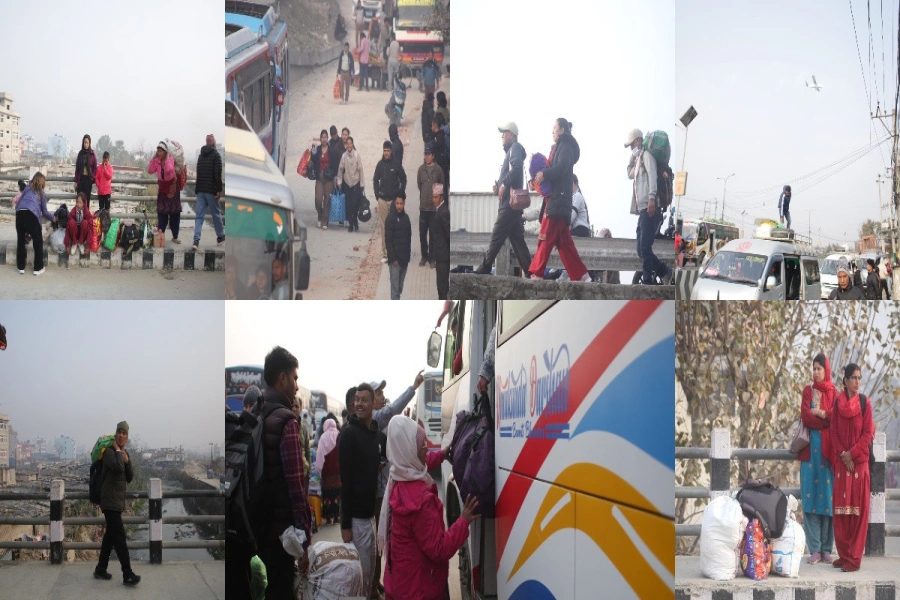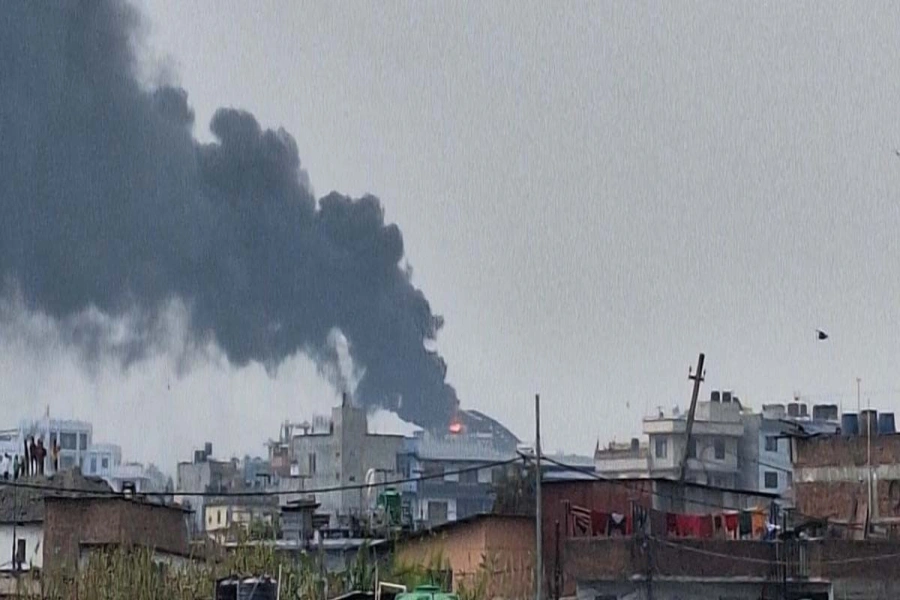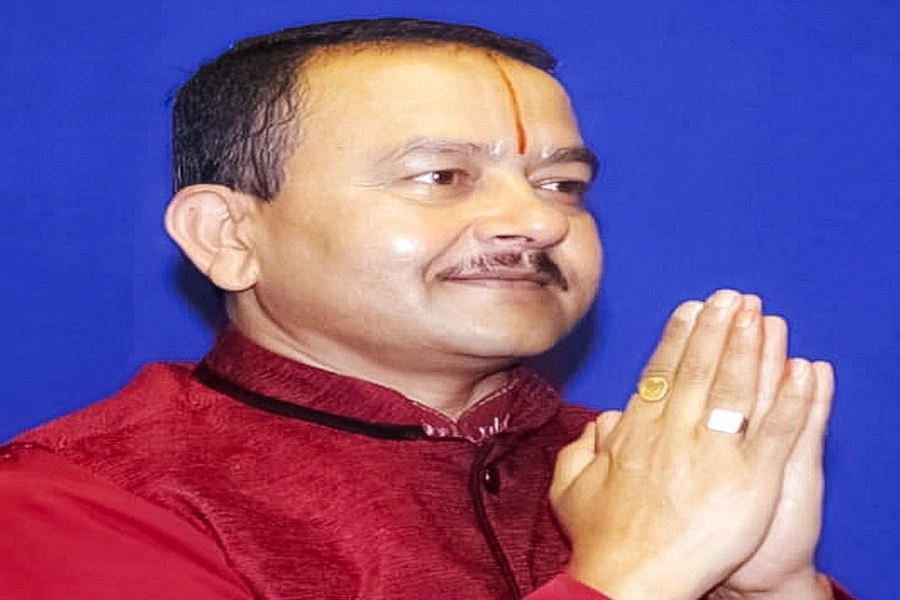Ncell is the first privately owned GSM operator in Nepal. Re-branded as Ncell from Mero Mobile on March 12, 2010, the company broke the monopoly of the then state-owned telecommunications company, Nepal Telecom, by aggressively expanding telecommunications services across the country. On April 12, 2016, Ncell officially became a part of Axiata Group Berhad -- a Malaysian telecommunications group. However, the transition has not been very smooth for the largest taxpayer in the country. Nevertheless, Ncell is moving ahead under the leadership of Managing Director Simon Perkins. Perkins talked with Republica's Kuvera Chalise, Sujan Dhungana and Santosh Neupane about the not so warm welcome in Nepal and various issues surrounding the company, its expansion and future plans. Excerpts:
Has the Capital Gains Tax (CGT) issue been settled now?
I think the picture is clearer now because the parliamentary Public Accounts Committee has come out with recommendations, with a very clear message, saying CGT is the responsibility of the seller. It was the point we have been making for long. The committee has also sought enquiry of the previous transactions to ascertain whether or not tax was paid. The second part doesn't really involve us. But the first part obviously does. And the committee's finding has come out correct. That is good and has made us feel better. Is it over? Probably not, because now authorities have got to try go after seller, Telia, to collect the tax. That is not going to be easy. So, we cannot predict anything at this point. As for our part, we have paid the withholding tax in accordance with the tax authority's instruction and legal requirement. That 15 percent was paid on behalf of TeliaSonera. We are very clear on that.
You paid TDS, but the amount was not withheld by Axiata while paying to Telia. How are you going to claim the amount?
The responsibility of CGT is with seller. TDS was paid on behalf of Telia in accordance with law. We will go after Telia for the same.
This is last week of Fiscal Year 2015/16 and the deadline to pay CGT is fast approaching. What is happening on that front?
The authority should be claiming 10 percent from Telia. That has been the recommendation of the Public Accounts Committee. I think they will go after Telia for the 10 percent. They might be doing it now. We do not know.
What will be your response if the tax authority seeks your help in getting CGT?
We can facilitate the dialogue, if the authority seeks our support. We know their names and their email addresses. We can forward letters. This is what we did last time. But we do not have any legal jurisdiction at Telia.
Cabinet decides to recover CGT from TeliaSonera

It is a worldwide practice that seller pays CGT. Did you never think Telia would not pay or Telia would not want to pay or Telia would pass the buck on you and run away?
We went to a lot of trouble before the transaction to find out the situation regarding this tax in order to avoid possible misunderstanding. I do not want to go into past details, but you can say that there is a very strong misleading element to this. I do not know whether it is deliberate or accidental.
So how are you moving forward with not so pleasing experiences? What are your plans?
We are focusing on what we should be doing, that is, serving the customers and delivering the services that customers need and like. That is why we are here. We have done quite a few things in terms of our commercial offers and promotions in the market such as making data and voice services more affordable. And the customers like them. The campaign on calling India at local rates, for instance, was signed up by hundreds of thousands of customers on the very first day.
We want to make the services, as the customers want, affordable in the right format. We recently did a night pack of 1 GB for NPR 100. I want be able to do something like that for the day. That's where we need to get to. Then you will see adoption of more data on the smartphone. And not forgetting that voice is still the key, the price of voice too should be brought down. We have done that already through day pack.
Next thing I want to do is introduce 4G. We are waiting for the authority to give the permission. 4G will make a huge difference in the way people access Internet. Every country will launch 4G because the speed and experience is so much there. It is more affordable as well.
How is 4G going to be cheaper than current pricing?
Because the cost to deliver data services over 4G is much lower. When you are not trying to recover very high capital expenditure, you can reduce the average cost. We have done it in every single country where we have launched 4G like Malaysia, Cambodia, Indonesia and Sri Lanka. 4G is mainly about two things -- cost and user experience. If it is the right price, people will use it for sure.
If you get the government permission, how long will it take to roll out 4G service?
We need around two months to build the network and launch the service. We are keen to do it really before the main tourist season.
Studies have showed that 10 percent increment in tele density contributes one percentage point to GDP. But despite having more than 100 percent tele density, we are yet to see that kind of impact in our economy. What do you think are the reasons?
Yes, GSMA and ITU have done studies and said there is correlation between tele density and GDP growth. But can you really say results are distinct and visible in the initial years of mobile broadband? I am not sure. I do not get stressed about it as well because, at this stage, our focus should be toward having coverage across Nepal. We still do not cover significant parts of this country, so let us get that done. We have to bring down the cost and improve the service. Is it going to improve GDP of the country? Yes. But when you say tele density is above 100 percent, that may be because people carry two or three SIM cards which is bit more of waste.
From our business, the amount of tax we pay, the people we employee, distributors, retailers and everything that is linked with us, we have made direct and visible contribution to the GDP. If our services help farmers to communicate with the market or a truck driver to get business, that helps in a small way at individual level. When you multiply that impact by millions, it makes a significant difference at the macro level. Directly, Ncell makes a difference in significant way by being the largest taxpayer. Not to be forgotten is, we also bring money in foreign currency from outside Nepal, from all of the countries where there is international connections. You know money would not come to Nepal without us providing the mechanism.
How much of your revenue comes from outside?
More than 30 percent our our revenue comes from outside the country.
Axiata is Malaysian group and there are many Nepali people working there. Do you have any specific plan for Nepalis in Malaysia?
Malaysia is easier for us to do because we have another big company there to team up with. But there is a huge number of Nepalis in Middle East. My team was in Qatar last week to meet operators there to talk what we can do to reduce the cost for Nepali workers to bring the calls back here. We have already done it in Saudi Arabia. In Qatar, it still depends on operators there. But if I do it from here, I do not have to wait for them. We have done it for India through India calling campaign. So not only for people there to call back home, but also for people at home to call them, we aim make it cheaper for destinations where families and relatives are working.
We are involved with Idea in India. Is there any possibility of Ncell and Idea working together for interconnectivity?
We have already started discussion on what can be done reduce the cost for roaming for example. Our team was in India three weeks ago and they are going back again. We have already lowered roaming for all Axiata companies. If you go to any Axiata network country, roaming cost is less now. For countries like India and Malaysia, I want to go even further than what we have done. I want our customers to take an Ncell SIM over there and call back at very affordable rates like local rates.
How long we have to wait?
Few more weeks.
How much are you investing in 2016? Where will the investment mostly go?
More than a month ago, we announced capital investment of USD 120 million (about Rs 12 billion) for the remainder of 2016. That is just for this year. Most of that goes into building network, coverage, capacity, 4G and all those things. Some goes into things like Ncell Centers.
What is the status of Ncell's capital enhancement proposal?
Capital enhancement is a catch up which we are doing to enhance fixed assets and capacity for more subscription. Our capital was increased during Telia's stay without getting the approval. So we have to tidy that up. It is being done now. The government authority has looked into the details. We have heard from media that the authority is going to approve it with a fine because it was not done properly in the past.
Tax issue caused negative sentiment toward Ncell to grow. So what are you planning to stop such sentiments?
Honestly, you know this better than me. Certain group wanted to make an issue of gains tax for their vested interest and politicized it. At present there are two things we are concentrating on. First, we need to make sure people know what the facts are. You saw us put in media what are the facts and what are the misleading things. It is important to make sure people are fully aware of that. When allegations come specifically, we answer them with the facts. People are aware of the facts now and have started to come out. And the second and more general point is we make sure the customers like our services. If customers are with us and we are doing good to all, that is the best.
From this incident, do you accept that one, your PR has not been very good and two, to solve this problem you can go public by being listed in the stock market and make it a local company?
Let me answer about PR. Our approach to this issue was never to take it in the public domain. Our conscious decision has been to address it by being in a dialogue with the government officials and the right people. We took that approach until the moment we paid the TDS. After we paid TDS, we went into media. Prior to that, we did not say anything because we were talking to government officials every day. Once our PR became active we went out with facts to make people aware of the truth. That has worked well. The business community and responsible personalities have started to come out in support. They just said its more brawl. You cannot let brawl to determine the direction of the country.
As for company going public, it is much bigger question which only our shareholders can answer. Only shareholders can decide whether to go public, and when and how. If you look at track record of Axiata, we have done it in other companies. Dialog is publicly listed and so is XL. We have done it in other companies as well.
In the height of tax controversy, there were attacks on Ncell towers. Will it have impacts on foreign investment or investors like you?
Such incidents disappointed us. That not only inflicted physical and revenue loss, it left about a million Nepali customers in rural areas without basic communications services for two to three weeks. It is sad that people can do actions like that which hit investor sentiment and overall investment environment. But we are thankful for the efforts the government made in bringing the situation under control. The support from the government, security agencies, local authorities and others concerned was tremendous. Political leadership, Minister for Home Affairs and Minister for Information and Communications came out, terming the act unlawful and wrong and that is not right way to deal with legal matter. They dealt with it really well.
What is the situation of network now? How much loss did the attacks caused?
We have fixed it now. The loss from the damage of equipment alone is well over Rs 20 million.






-1200x560-1772467693.webp)






























